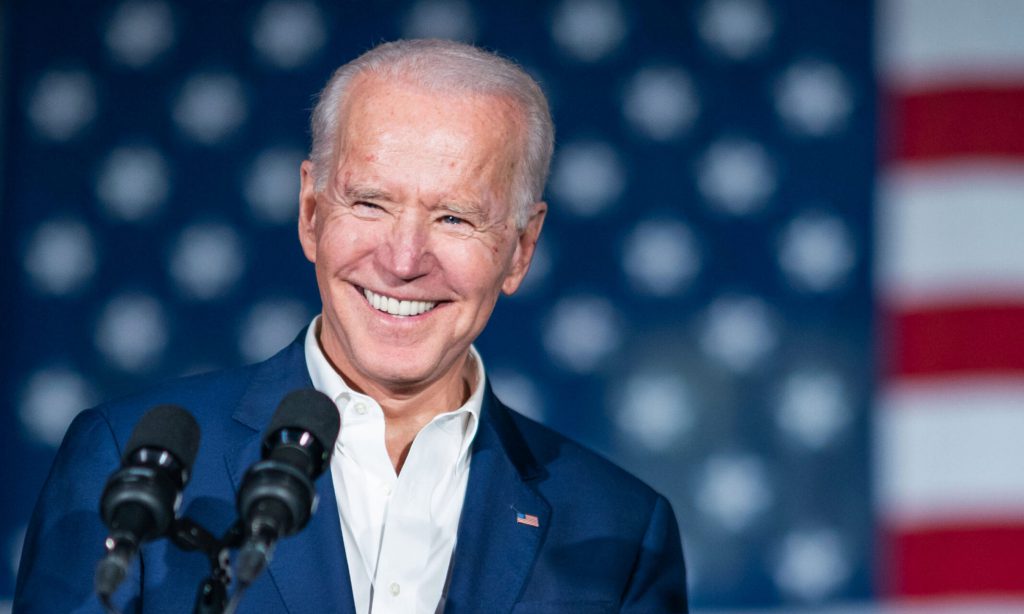Stimulus Bill Provides Major Funding to Local Governments
Bill will funnel millions into local services, housing assistance, health care, childcare tax credits and unemployment.
The $1.9 trillion American Rescue Plan Act signed by President Joe Biden Thursday includes nearly $600 million for Milwaukee and Milwaukee County. That’s money leaders say could help residents who have been the hardest hit during the year-long pandemic.
Milwaukee Mayor Tom Barrett said during his more than 30 years in public life, the Rescue Plan Act is the most significant piece of legislation he has ever seen.
Most of the money in the stimulus bill will go to cities and local governments to help them provide essential services to residents. The city of Milwaukee could receive about $406 million from the federal bill. Milwaukee County could receive about $186 million.
About a fourth — 22.4 percent — of people residing in the city of Milwaukee live in poverty, according to the Milwaukee Department of City Development. Nearly 17 percent of Milwaukee County residents live in poverty, according to the department.
Throughout the pandemic, the areas of the city where poverty is the most prevalent have been hit the hardest by COVID-19. African Americans, Hispanics and Native Americans living in Milwaukee have suffered the most, Barrett said.
“This has not been an equal opportunity pandemic,” Barrett said. “It has hit people who have historically been victims of systemic racism, of substandard health care, of substandard housing, of substandard opportunities, more than it has hit the upper class. And this legislation recognizes that.”
Barrett said he has met with the city’s housing team to begin talking about how the money will be spent. He wants to curb evictions, and make sure people have better housing options in the city. Barrett is also hoping an infrastructure package being considered by Biden could help with the city’s ongoing lead abatement program.
The bill includes several measures that could boost Milwaukee’s economy, including:
- Direct stimulus payments totaling $2,000.
- Extending the $300 weekly federal unemployment benefit until Sept. 6 and providing a tax break on $10,000 in unemployment benefits.
- Providing paid leave to American families.
- $137 billion for investing in vaccines and their distribution, establishing community vaccination clinics, investing in testing and sequencing, expanding the public health workforce, investing in the Disaster Relief Fund and shoring up domestic supplies.
- $30 billion in housing assistance, including rental assistance for struggling families and individuals who are homeless or at risk of becoming homeless.
- Extending a federal moratorium on evictions.
- $170 billion to K-12 schools and institutions of higher education to facilitate the safe reopening of schools and avoid layoffs.
- $40 billion to child care providers.
- $105 billion to expand health care access, including increasing and expanding Affordable Care Act subsidies and subsidizing COBRA coverage through September.
- $143 billion in progressive tax breaks, including increasing the child tax credit and the earned income tax credit.
- $350 billion in funding for states and local governments to support businesses and essential workers on the front lines.
- $25 billion to provide grants to restaurants and bars that lost revenue due to the coronavirus.
- Creating a $10 billion infrastructure program to help local governments.
The Milwaukee Common Council released a statement Thursday saying they want to be involved in deciding how the American Rescue Plan funding is spent.
“The distribution of the CARES Act federal funding received in 2020 was almost wholly decided by Mayor Barrett and the city Budget Office, which he is in control of,” the statement said. “The ARPA allows many categories of approved funding, and each aldermanic district has its own needs and its own stakeholders who have the best perspective on how to effectively use the emergency funding.”
Moore said the $1,400 stimulus payment is desperately needed to prevent homelessness. Stimulus payments of $600 went out earlier this year. And she wants to keep fighting to make some provisions, like the child tax credit, permanent.
“One of the things in the Republican’s cross-hairs is not to give this $3,600 a year to parents. And every parent needs it,” Moore said. “People’s grocery bills have gone up, electricity bills have gone up, the demand to pay the Wi-Fi bill is not optional. It’s not for PlayStation. You have to have it for learning.”
Listen to the WPR report here.
Landmark Stimulus Plan Could Help Those Hit Hardest By Pandemic was originally published by Wisconsin Public Radio.
More about the Coronavirus Pandemic
- Governors Tony Evers, JB Pritzker, Tim Walz, and Gretchen Whitmer Issue a Joint Statement Concerning Reports that Donald Trump Gave Russian Dictator Putin American COVID-19 Supplies - Gov. Tony Evers - Oct 11th, 2024
- MHD Release: Milwaukee Health Department Launches COVID-19 Wastewater Testing Dashboard - City of Milwaukee Health Department - Jan 23rd, 2024
- Milwaukee County Announces New Policies Related to COVID-19 Pandemic - David Crowley - May 9th, 2023
- DHS Details End of Emergency COVID-19 Response - Wisconsin Department of Health Services - Apr 26th, 2023
- Milwaukee Health Department Announces Upcoming Changes to COVID-19 Services - City of Milwaukee Health Department - Mar 17th, 2023
- Fitzgerald Applauds Passage of COVID-19 Origin Act - U.S. Rep. Scott Fitzgerald - Mar 10th, 2023
- DHS Expands Free COVID-19 Testing Program - Wisconsin Department of Health Services - Feb 10th, 2023
- MKE County: COVID-19 Hospitalizations Rising - Graham Kilmer - Jan 16th, 2023
- Not Enough Getting Bivalent Booster Shots, State Health Officials Warn - Gaby Vinick - Dec 26th, 2022
- Nearly All Wisconsinites Age 6 Months and Older Now Eligible for Updated COVID-19 Vaccine - Wisconsin Department of Health Services - Dec 15th, 2022
Read more about Coronavirus Pandemic here






















